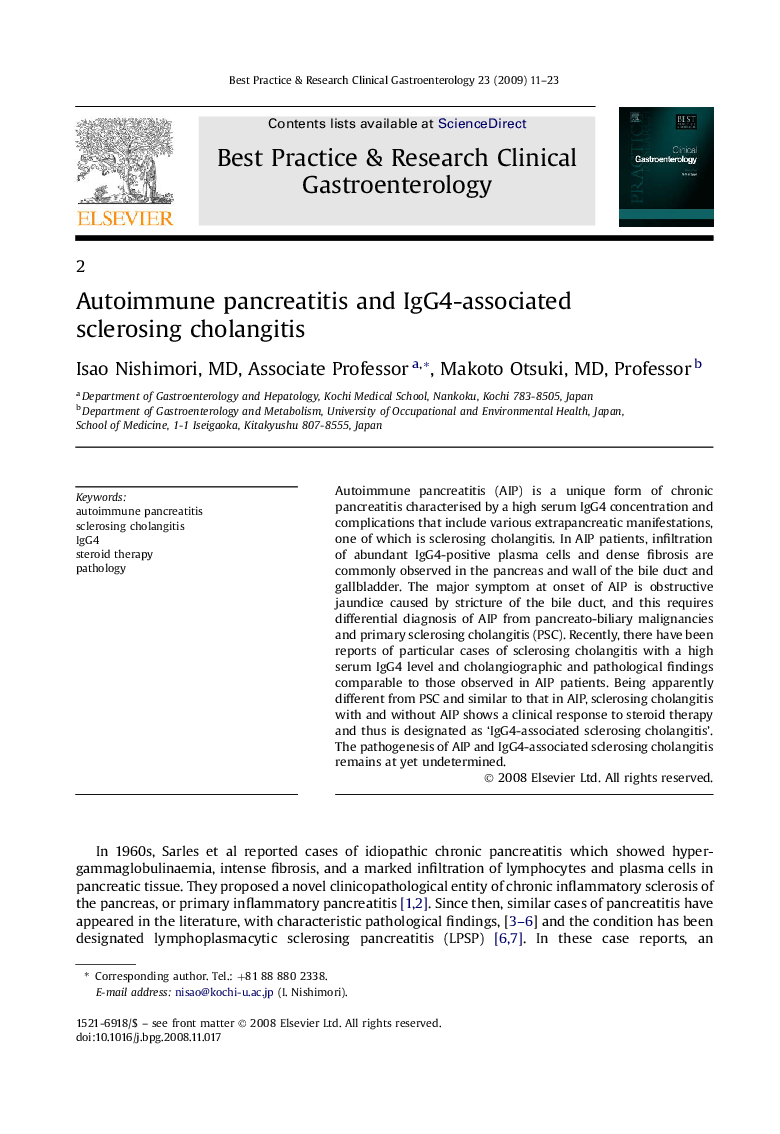| Article ID | Journal | Published Year | Pages | File Type |
|---|---|---|---|---|
| 3254465 | Best Practice & Research Clinical Gastroenterology | 2009 | 13 Pages |
Autoimmune pancreatitis (AIP) is a unique form of chronic pancreatitis characterised by a high serum IgG4 concentration and complications that include various extrapancreatic manifestations, one of which is sclerosing cholangitis. In AIP patients, infiltration of abundant IgG4-positive plasma cells and dense fibrosis are commonly observed in the pancreas and wall of the bile duct and gallbladder. The major symptom at onset of AIP is obstructive jaundice caused by stricture of the bile duct, and this requires differential diagnosis of AIP from pancreato-biliary malignancies and primary sclerosing cholangitis (PSC). Recently, there have been reports of particular cases of sclerosing cholangitis with a high serum IgG4 level and cholangiographic and pathological findings comparable to those observed in AIP patients. Being apparently different from PSC and similar to that in AIP, sclerosing cholangitis with and without AIP shows a clinical response to steroid therapy and thus is designated as ‘IgG4-associated sclerosing cholangitis’. The pathogenesis of AIP and IgG4-associated sclerosing cholangitis remains at yet undetermined.
